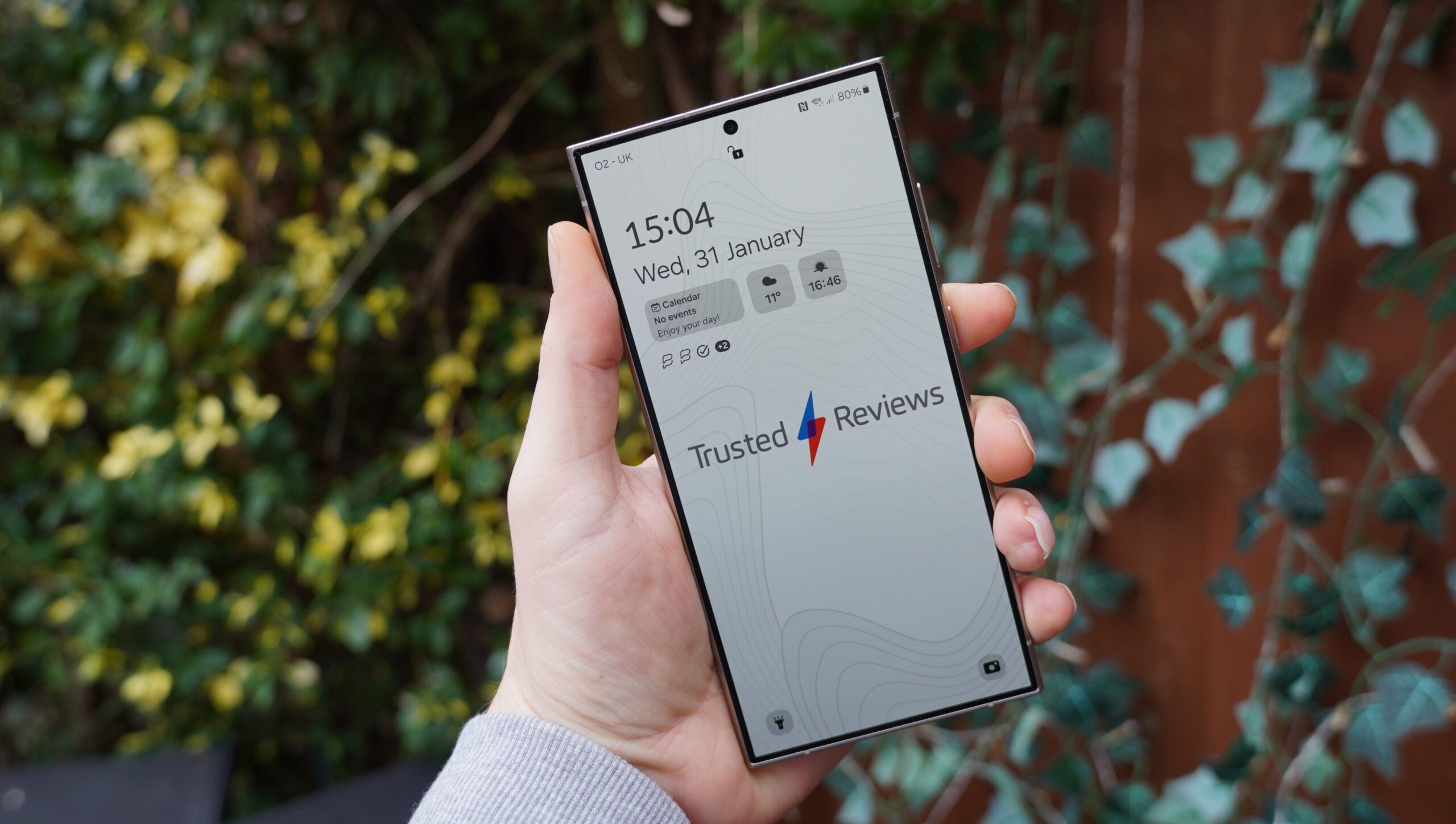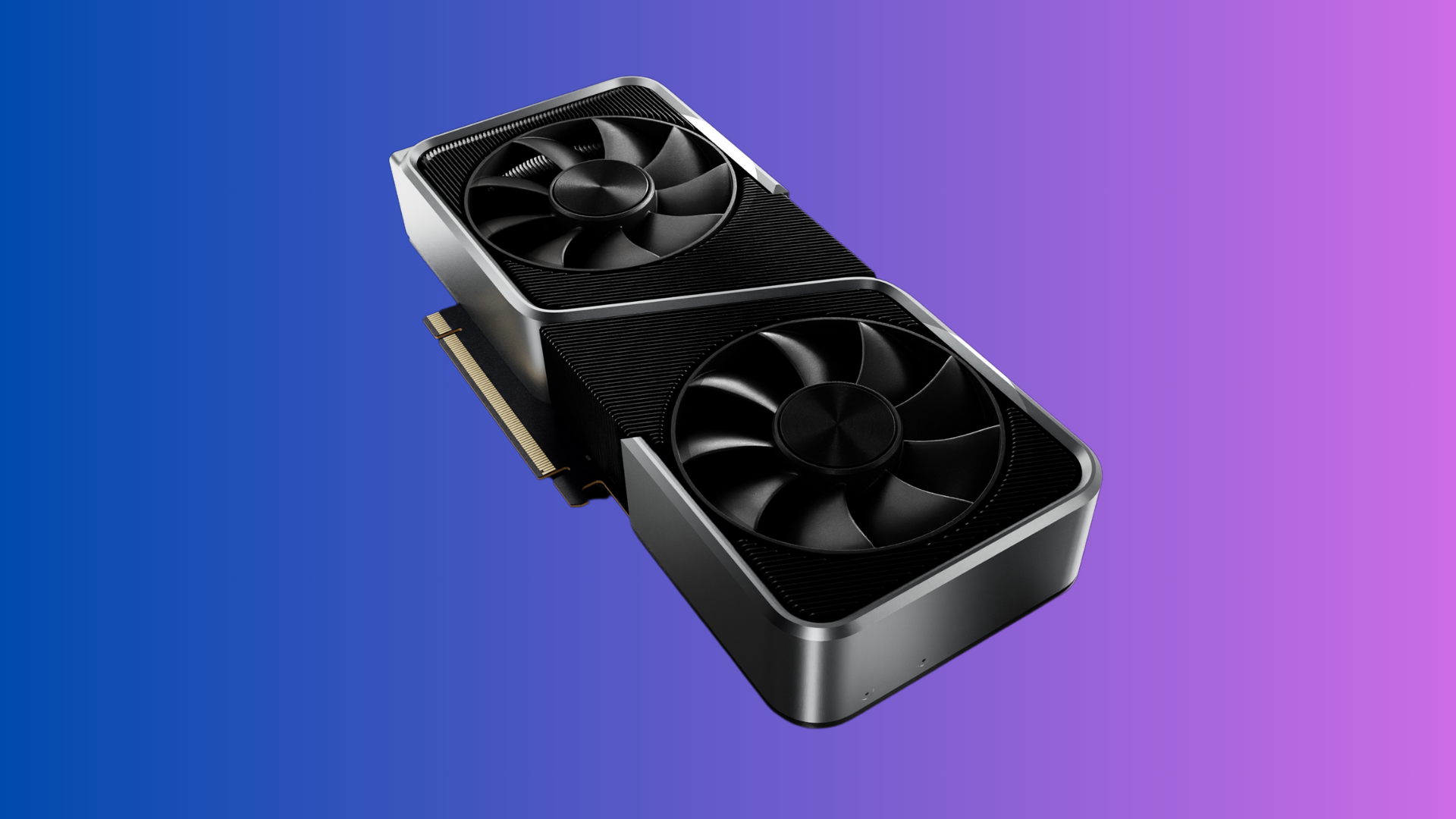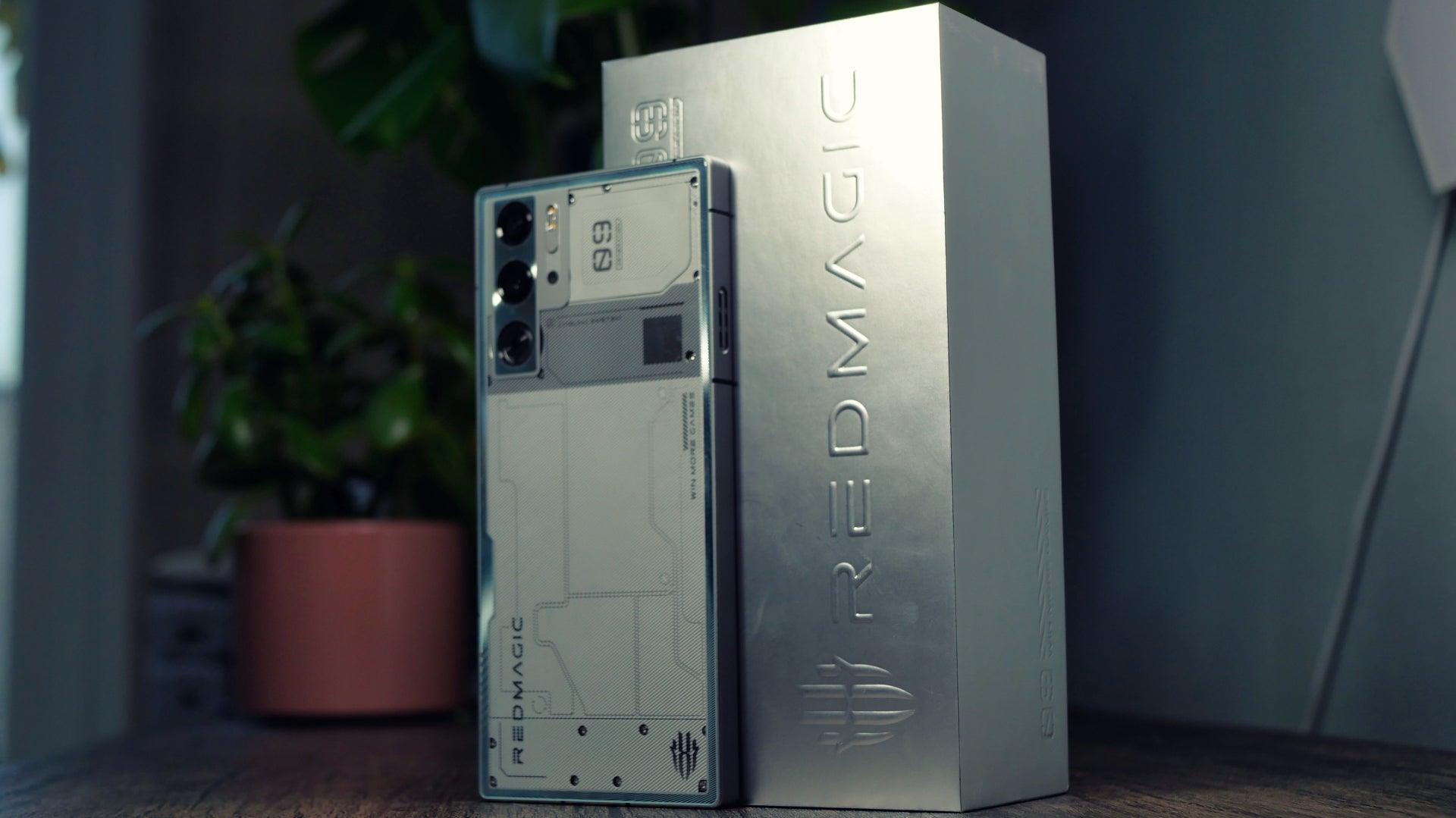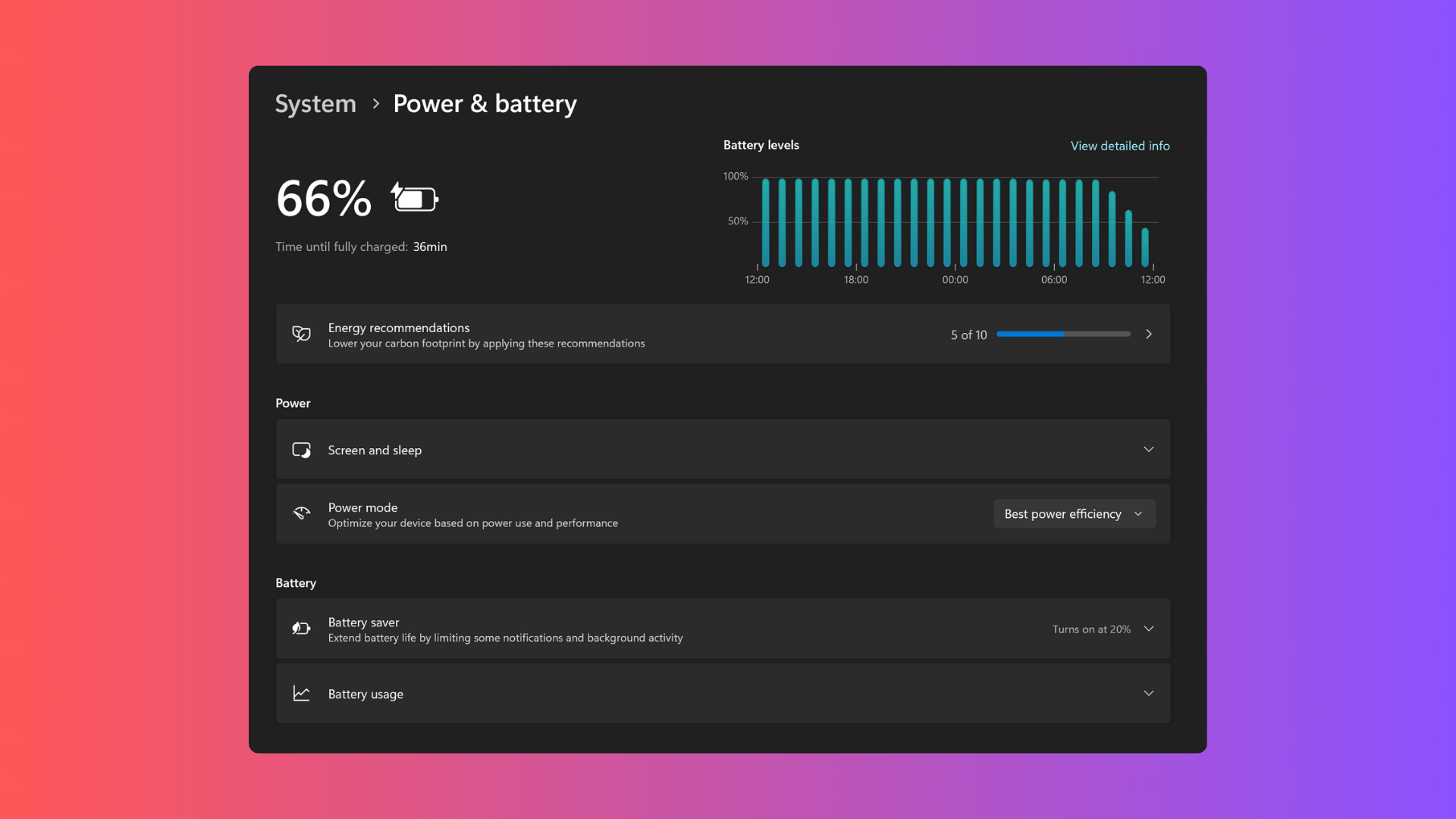What is Google Bard? The new features announced at I/O 2023
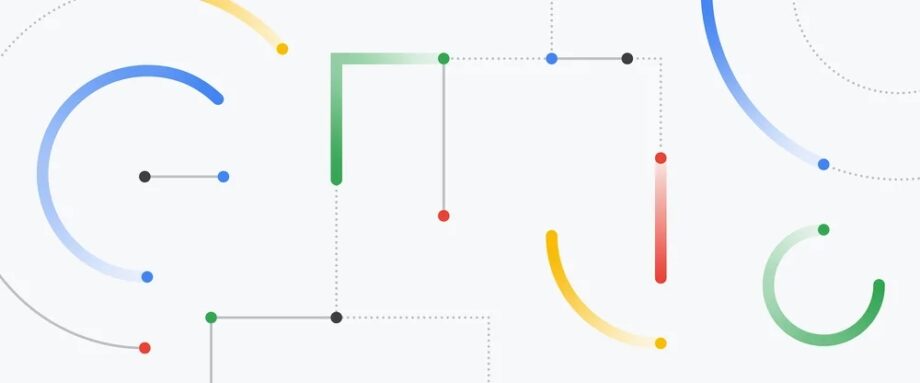
A bunch of new features for the Bard AI chatbot have been revealed at Google I/O. Bard was initially revealed back in February and it’s now opening up to more users.
Google is keen to remind you that Bard remains an ‘experiment’ but that warning isn’t stopping the company from offering a bunch of new features, and continuing its rivalry with ChatGPT/Bing AI.
The Bard portion of Google I/O ended with the line “Do and create anything you can image”, summing up Google’s goals for having you use its AI tools for anything and everything.
Google’s Bard is based on the company’s Language Model for Dialogue Applications (LaMDA). “We’ve been working on an experimental conversational AI service, powered by LaMDA, that we’re calling Bard. And today, we’re taking another step forward by opening it up to trusted testers ahead of making it more widely available to the public in the coming weeks,” Google said in a launch blog post.
“Bard seeks to combine the breadth of the world’s knowledge with the power, intelligence and creativity of our large language models. It draws on information from the web to provide fresh, high-quality responses.”
How can I get Google Bard?
Up until Google I/O 2023, users had to join a waiting list to give Bard a try. Now, Google is opening up the AI chatbot to 180 countries and territories, while also removing the waiting list completely.
More languages are coming too, including Japanese and Korean, with Bard on track to support 40 languages soon.
£30 per month for the Google Pixel 7 and 100GB of data
The Pixel 7 is one of the best phones we’ve reviewed this year, especially for the price. Now you can get it for an incredible price that includes 100GB of data on the Three network for just £30 per month, making it even more affordable. If you’re a keen mobile photographer, it’s an ideal handset for you.
- Affordable Mobiles
- 100GB, unlimited minutes, unlimited texts, and no upfront cost
- £30 per month
What is Google Bard?
Google uses the example of asking deeply contextualised questions of Bard in order to provide more personalised responses. A user could, for instance, ask Bard to provide new discoveries from the James Webb telescope they could teach to a nine-year-old.
Users could also benefit from knowledge that isn’t necessarily based on fact, where AI can collate information from around the web and provide input. For example, it is possible to ask “is piano or guitar easier to learn and how much practice does each need?”
As you can see below, Bard could provide a paragraph surmising answers to both of those questions, along with useful links to the source material.
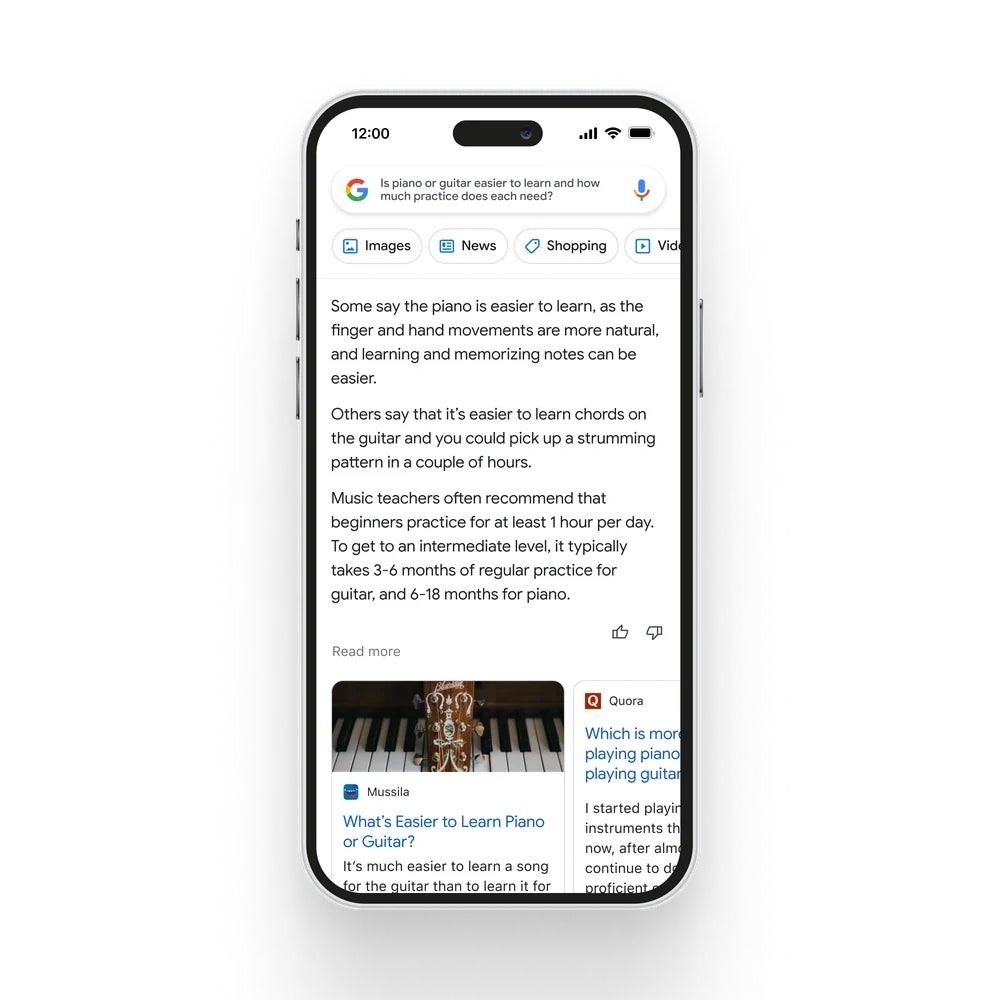
At Google I/O 2023, Sissie Hsiao, VP and General Manager for Google Assistant and Bard showcased a bunch of new features coming to the AI chatbot. Bard is transitioning to be powered by the company’s PaLM 2, its latest AI language model.
The change brings with its support for greater code generation, debugging and explaining code snippets, with support for 20+ programming language. The demo showed code being generated according to queries but then adapting when asked to make the code more precise. Bard was then able to explain the code and respond to requests regarding how the code could be improved.
A few more straightforward updates included the addition of Dark Mode and the ability to export to Gmail or Google Docs. Further integration with other Google tools has arrived too, as well as integration with third parties.
You can now use Bard alongside Google Lens to make requests like: “Write a funny caption about this image”. Or, for Google Maps, request potential university locations in a given area and be shown the results then even have them transition over to a spreadsheet in Google Sheets too.
For third parties, Google highlighted Indeed, Instacart and more. The key example given was Adobe Firefly, with Bard working with Adobe’s AI image generation tool to create a “fun” image for a kids’ birthday party invitation.
The Google I/O presentation ended with a tease, with Hsiao saying how excited Google is to transition to Gemini – the eventual successor for the PaLM 2 model that currently powers Bard.


